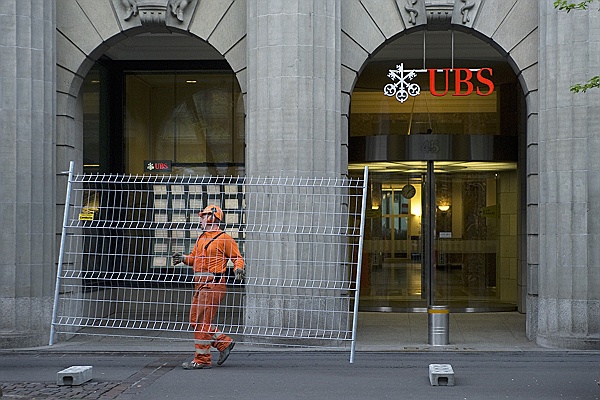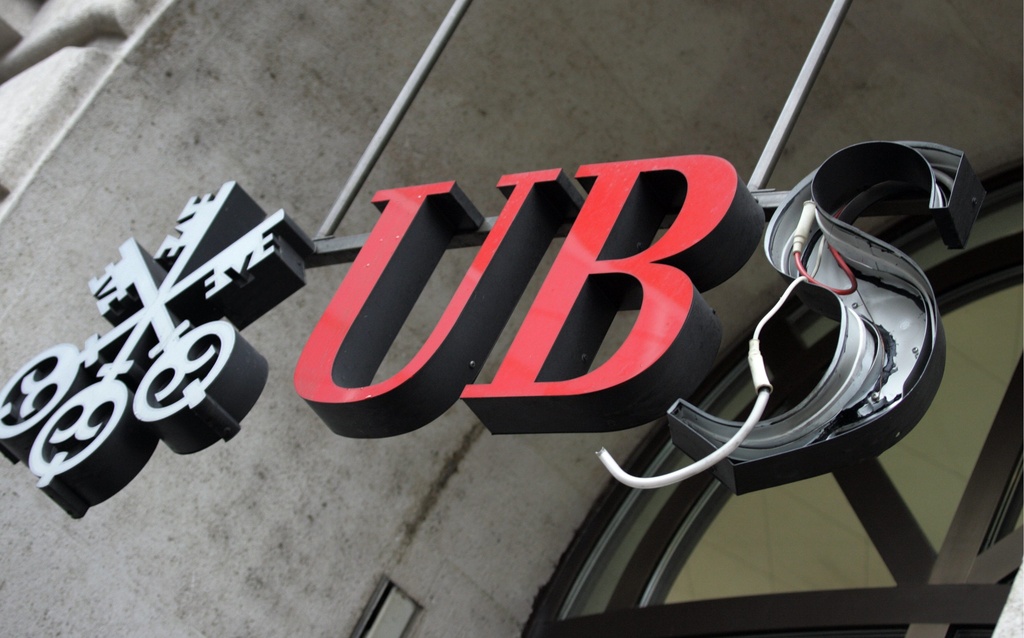Big banks underwhelm with strategy “changes”

Switzerland’s big banks, UBS and Credit Suisse, have failed to convince markets that they have fully turned their backs on risky trading despite restructuring plans.
Both banks have recently signalled their intention to scale back investment banking operations under the guise of putting wealthy clients first. But the changes have not gone far enough for some observers.
In a note to investors, Bank Sarasin described UBS’s restructuring – announced on Thursday – as “evolution not revolution”.
The note expressed disappointment that UBS had not cut back investment banking further to meet the strategy of an operation just large enough to service wealthy clients and institutions.
“We are not fully convinced that UBS really needs an investment bank of that size and diversity. The list of businesses to be exited remains small. UBS’s strategy mirrors that of many peers struggling to adjust to more challenging market conditions,” Sarasin commented.
Herd mentality
Sarasin had also been lukewarm on Credit Suisse’s restructuring plans announced at the start of this month.
“While we think that this points in the right direction, overall however, we would like to see more pronounced action in Credit Suisse’s investment banking alignment process,” Sarasin said in another note.
Zurich Cantonal Bank analyst Andreas Venditti also believes that both banks could have gone further – but conceded that the larger size of Credit Suisse’s investment banking operations within the group made it harder for that bank to scale back significantly.
“I am disappointed that there is no significant shift in strategy,” Venditti told swissinfo.ch. “This will not really change the structure of either bank.”
Venditti is also convinced that both banks are merely following the herd with the same tinkering as their global rivals.
League tables binned
UBS and Credit Suisse had stepped into line with the competition last year when all banks were boosting staffing levels and operations in investment banking in the misguided belief that market conditions would turn more favourable.
Rather than fully returning to the “core DNA” (as UBS chief executive Sergio Ermotti put it on Thursday) of wealth and asset management, the suspicion remains that UBS and Credit Suisse are treading water in the hope that they can return to the big league of investment banking.
For the time being, muted investor risk appetite, low interest rates and an impending slew of tough new regulations, designed to curb investment banking excesses, have forced the big universal banks to temporarily clip their own wings.
Ermotti told investors on Thursday that UBS had had enough of chasing “league table status” following the disastrous attempt by his bank to match Wall Street’s investment banking gravitas.
Biding time
But UBS investment banking chief Carsten Kengeter sometimes appeared to be singing from a different hymn sheet, despite acknowledging the “daunting” challenges ahead.
While UBS will shed some operations, 2,000 jobs in the division and half of its risky assets by the end of 2016, Kengeter used his presentation to demonstrate how the remaining business lines could increase market share at the expense of rivals and forge growth in new markets, particularly Brazil.
“The banks are being driven by new capital regulations [forcing banks to set aside more capital to cover risky trades] that will make some businesses uneconomic,” Venditti told swissinfo.ch. “Everyone is doing the same thing.”
“The ambition to be a major world player in investment banking is still there,” he added. “But the investment banking environment is not going to get any easier – it will remain a very competitive business.”^
One piece of good news from UBS’s investor day conference on Thursday, that did impress analysts and investors, was the bank’s decision to lift a long term freeze on dividend payments by awarding a nominal SFr0.10 payment per share for 2011.
UBS said it aimed to progressively increase dividends over the next years. On Friday, shares in the bank rose slightly on early morning trading on the Swiss stock exchange – trading at just over SFr10.50 per share.
Switzerland’s two big “universal” banks were both savaged by the financial crisis.
Credit Suisse got its fingers burned, but avoided the worst by spotting the warning signs earlier than its rival.
UBS, on the other hand, became Europe’s worst hit bank, writing down more than $50 billion in losses. The group had to be bailed out by the government and the Swiss National Bank in 2008.
The fiasco led many Swiss politicians, the media and public to attack the banks’ plan of expanding investment banking operations in the build up to the crisis. Many observers have voiced concerns that traditional Swiss wealth management activities had been smothered by a new breed of aggressive Anglo-Saxon banking.
Fortunes have improved slightly for both banks in the past 12 months, but poor investment banking results have dragged back their recovery – leading to more than 7,000 combined job losses being announced this year.
Tens of thousands of jobs have been slashed worldwide as the banking industry continues to rock from one problem to another.
Multinational banks have been hit hard by the unresolved European and US debt crises, that have left investors cautious and forced interest rates to rock bottom.
In addition, Swiss banks have been plagued by the strong franc – with both exposed to many expenses in Swiss francs while taking in euro and dollar denominated fees and assets.
In the third quarter of this year, UBS surprised the markets by shrugging off major rogue trading losses with a SFr1 billion profit. Credit Suisse posted SFr683 million profit for the quarter.

In compliance with the JTI standards
More: SWI swissinfo.ch certified by the Journalism Trust Initiative







You can find an overview of ongoing debates with our journalists here. Please join us!
If you want to start a conversation about a topic raised in this article or want to report factual errors, email us at english@swissinfo.ch.